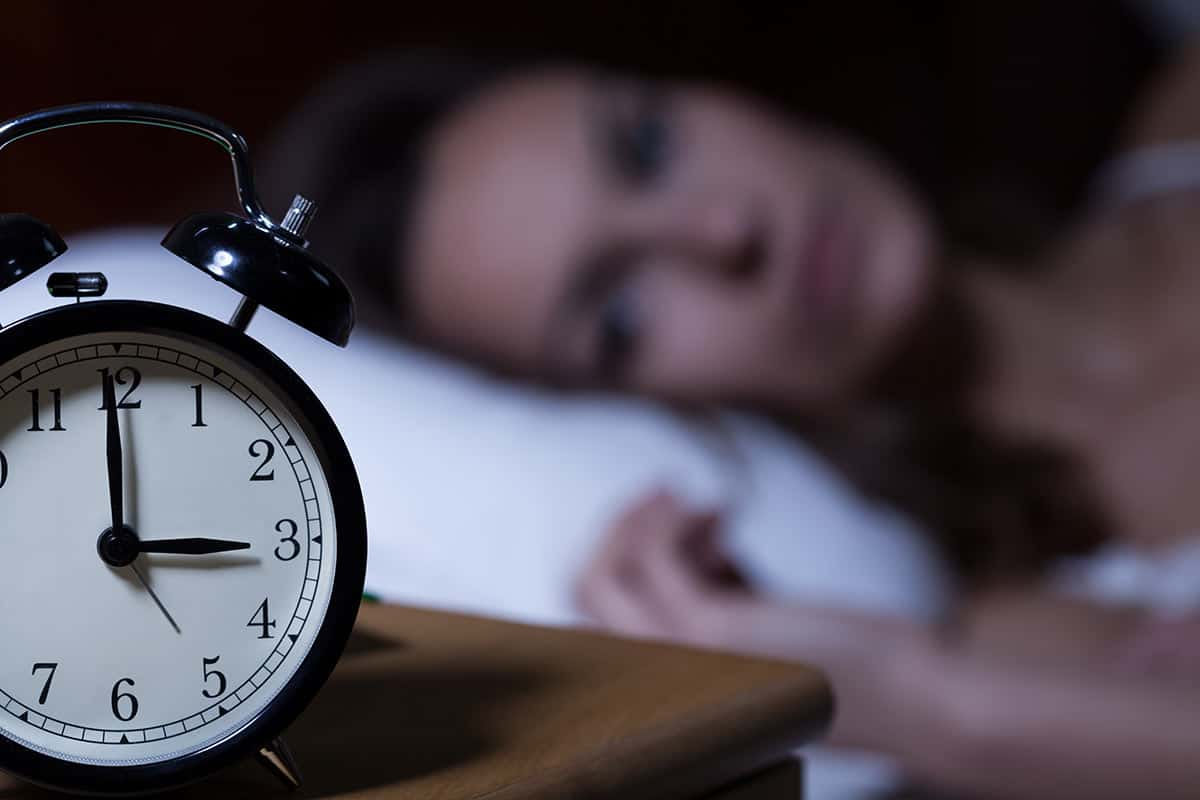If I am so tired, why can’t I sleep?

Sleep and dreaming are essential to good health. However, according to Statistics Canada, one in every seven Canadians aged 15 or older, about 3.3 million people, have trouble going to sleep or staying asleep.
Insomnia is a sleep disorder characterized by difficulty falling or staying asleep, or non-restorative sleep. Insomnia that occurs most nights and lasts a month or more is considered chronic insomnia. Sleep is not a luxury, but rather an important component of health; no less so than air, water and food. Sleep is crucial for a vibrant, energetic and productive lifestyle and it is widely believed that seven to eight hours of sleep is necessary for optimal health.
Just like any other health condition, insomnia has many causes, ranging from psychological, biochemical to environmental factors. To say that stress can affect proper sleep patterns seems obvious, but new research has found that sleep disturbances are directly related to increased sensitivity to arousal-producing stress hormones such as cortisol. Researchers compared patients with insomnia to those without sleep disturbances and they found that insomniacs with the highest degrees of sleep disturbance secreted the highest amount of cortisol, particularly in the evening and nighttime hours.
The main stress hormone cortisol has a natural rhythm – normally peaking between 6:00 am and 8:00 am. Then between 8:00 am and 11:00 am, cortisol levels begin to drop and gradually decline throughout the day, reaching the lowest point about 2:00 am. The cyclical rise and fall of cortisol levels govern our level of wakefulness throughout the day and night. Cortisol is excitatory; it arouses us and wakes us up which is great in the morning. But, when as a result of prolonged stress cortisol levels get stuck at higher levels, it is bad news for a good night’s sleep.
As a result of elevated nighttime cortisol, a person can feel extremely tired but unable to sleep. A common question asked by two-thirds of people with insomnia is, “If I am so tired, why can’t I sleep?” This common trend has been found in over two-thirds of the population who are experiencing chronic stress.
If chronic stress is a problem in your life you may find yourself suffering from insomnia. To reduce the effects of stress look for nutritional supplements that support your adrenal glands with adaptogenic herbs including Rhodiola, Suma, Siberian ginseng, Schisandra and Ashwagandha. These will help to regulate the stress hormones and, in time, sleep will improve. Once your adrenal glands are regulated you should no longer need additional help with sleep.
Another type of insomnia very commonly seen is sleep disturbances as a result of the menopausal transition. Some women wake up due to hot flashes at night, sometimes followed by episodes of chilling. For others, insomnia is independent of hot flashes. Once hormones are regulated, sleeping problems will improve for most women.
If your insomnia is a result of hot flashes and night sweats there are natural remedies that will relieve these symptoms and let you have a good night’s sleep again. These products contain Dong Quai, Chasteberry, Black Cohosh, Gamma-Orysanol and Hesperidin for the reduction of hot flashes, night sweats and other symptoms of menopause. You can also look for sage for the reduction of excess perspiration.
Dr. Marita Schauch BSc ND is a graduate of the Canadian College of Naturopathic Medicine, Canada’s premier institute for education and research in naturopathic medicine. Dr. Schauch’s health articles educate the public about health and wellness and have been featured in numerous print media. She currently resides and has her clinical practice in Victoria B.C. www.drmarita.com
